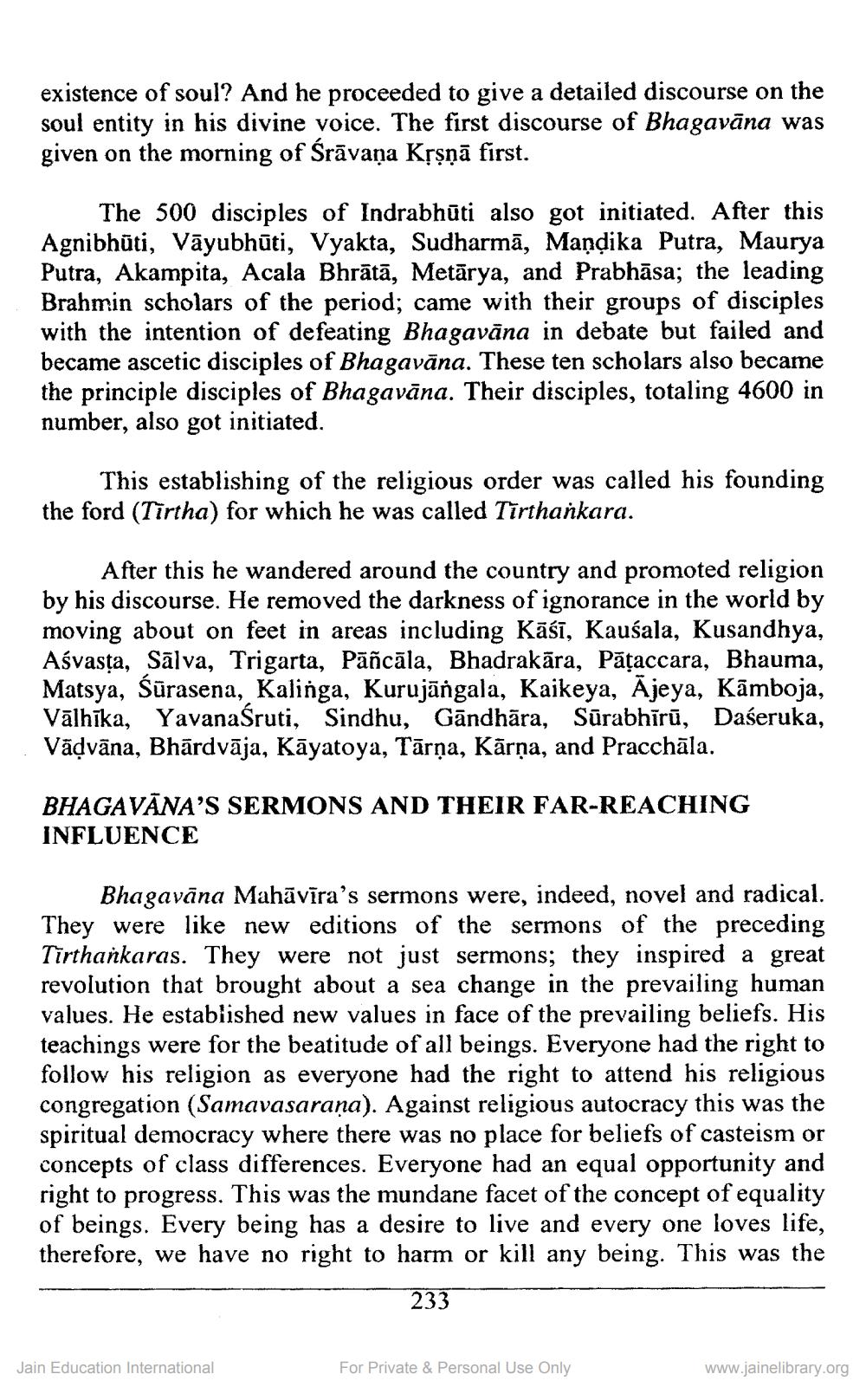________________
existence of soul? And he proceeded to give a detailed discourse on the soul entity in his divine voice. The first discourse of Bhagavāna was given on the morning of Srāvana Krşņā first.
The 500 disciples of Indrabhūti also got initiated. After this Agnibhūti, Vāyubhūti, Vyakta, Sudharmā, Mandika Putra, Maurya Putra, Akampita, Acala Bhrātā, Metārya, and Prabhāsa; the leading Brahmin scholars of the period; came with their groups of disciples with the intention of defeating Bhagavāna in debate but failed and became ascetic disciples of Bhagavāna. These ten scholars also became the principle disciples of Bhagavāna. Their disciples, totaling 4600 in number, also got initiated.
This establishing of the religious order was called his founding the ford (Tirtha) for which he was called Tīrthankara.
After this he wandered around the country and promoted religion by his discourse. He removed the darkness of ignorance in the world by moving about on feet in areas including Kāśī, Kausala, Kusandhya, Aśvasta, Sālva, Trigarta, Pāñcāla, Bhadrakāra, Pāțaccara, Bhauma, Matsya, Śūrasena, Kalinga, Kurujāngala, Kaikeya, Ājeya, Kāmboja, Vālhika, Yavanaśruti, Sindhu, Gāndhāra, Sūrabhīrā, Daśeruka, Vāļvāna, Bhārdvāja, Kāyatoya, Tārņa, Kārņa, and Pracchāla.
BHAGAVĀNA'S SERMONS AND THEIR FAR-REACHING INFLUENCE
Bhagavāna Mahāvīra's sermons were, indeed, novel and radical. They were like new editions of the sermons of the preceding Tirthařkaras. They were not just sermons; they inspired a great revolution that brought about a sea change in the prevailing human values. He established new values in face of the prevailing beliefs. His teachings were for the beatitude of all beings. Everyone had the right to follow his religion as everyone had the right to attend his religious congregation (Samavasaraņa). Against religious autocracy this was the spiritual democracy where there was no place for beliefs of casteism or concepts of class differences. Everyone had an equal opportunity and right to progress. This was the mundane facet of the concept of equality of beings. Every being has a desire to live and every one loves life, therefore, we have no right to harm or kill any being. This was the
233
Jain Education International
For Private & Personal Use Only
www.jainelibrary.org




